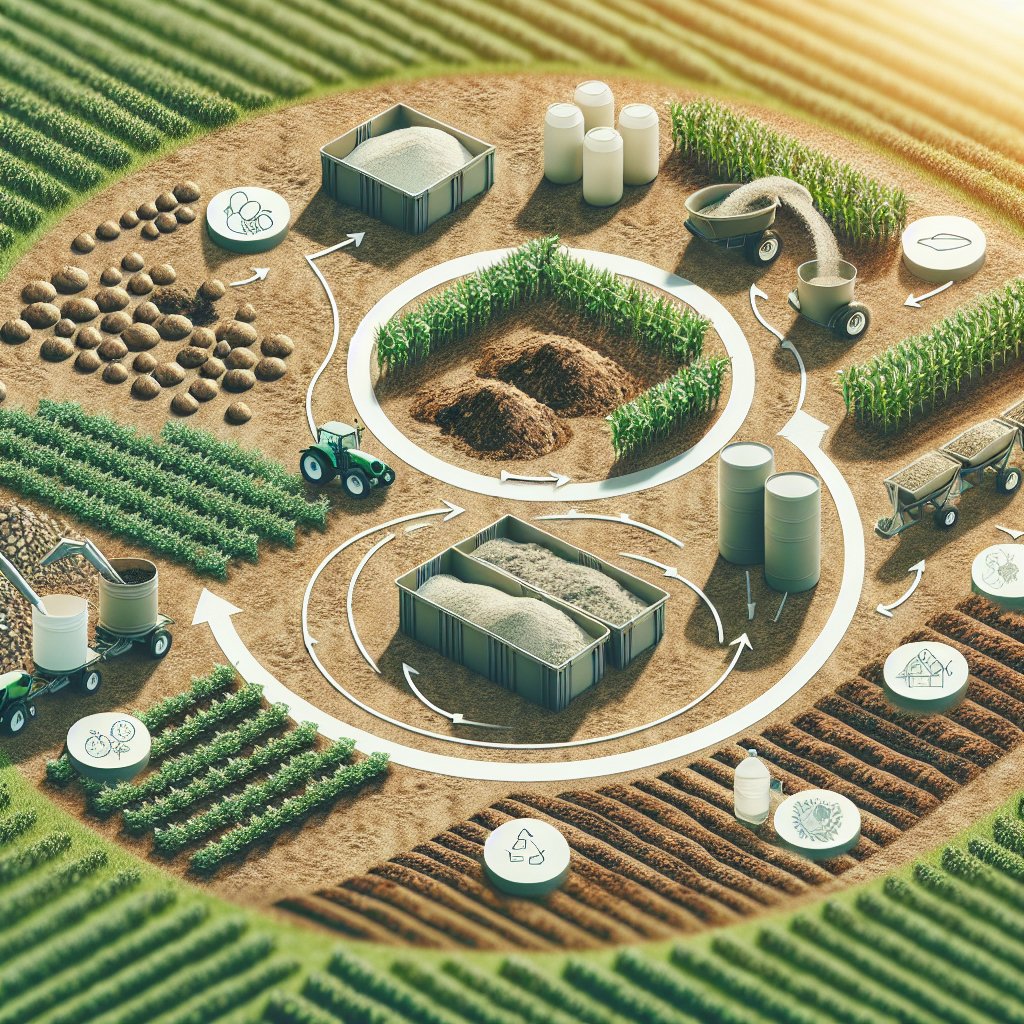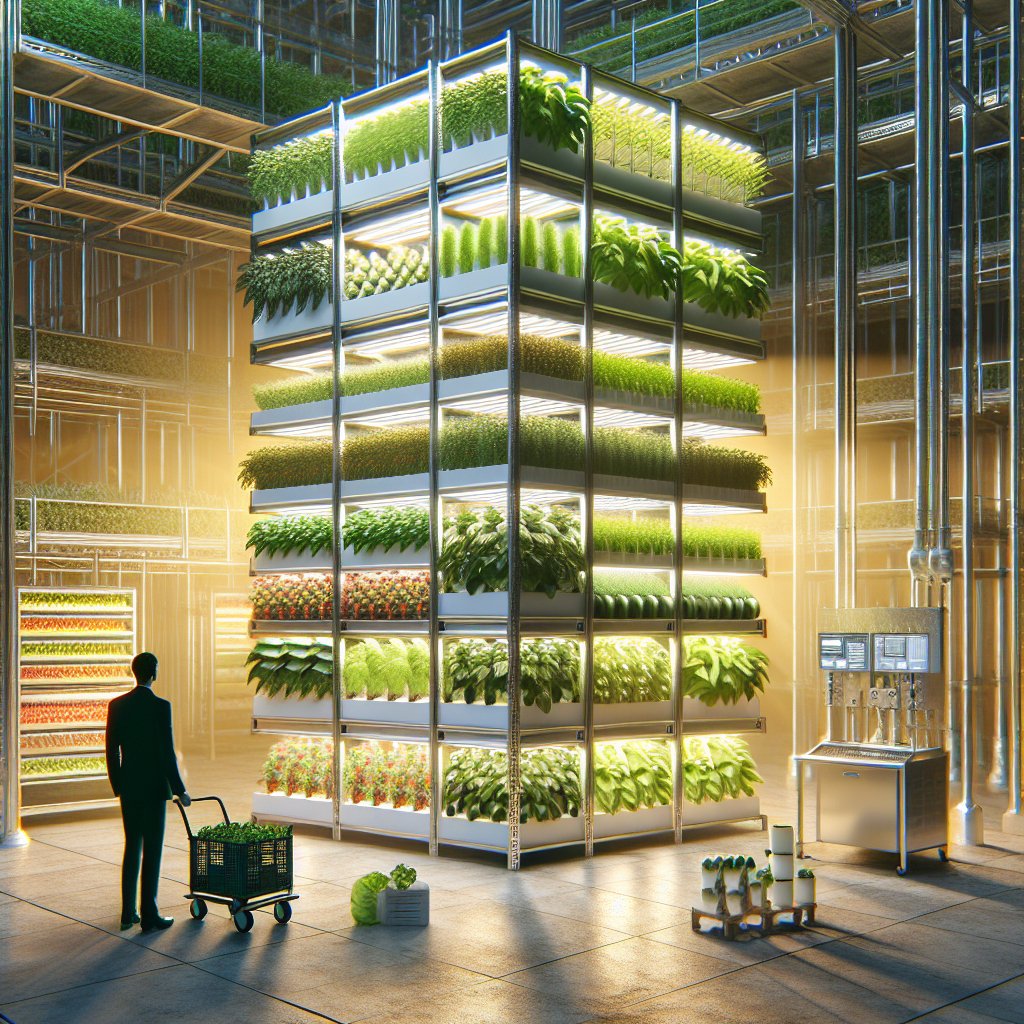Natural fertilizers have become an essential component in sustainable farming practices, offering a viable alternative to synthetic fertilizers. As farmers increasingly seek eco-friendly solutions to enhance soil fertility and crop yield, understanding how to effectively use natural fertilizers is crucial. This article delves into the types of natural fertilizers available, their benefits, and practical tips for their application on your farm.
Understanding Natural Fertilizers
Natural fertilizers, often referred to as organic fertilizers, are derived from natural sources such as plant and animal matter. Unlike synthetic fertilizers, which are chemically manufactured, natural fertilizers provide nutrients in a form that is more easily assimilated by plants and less harmful to the environment. They play a significant role in maintaining soil health, improving soil structure, and promoting biodiversity.
Types of Natural Fertilizers
There are several types of natural fertilizers, each with unique properties and benefits. Some of the most common include:
- Compost: Made from decomposed organic matter, compost is rich in nutrients and beneficial microorganisms. It improves soil structure, enhances moisture retention, and provides a slow-release source of nutrients.
- Manure: Animal manure, such as cow, horse, or chicken manure, is a traditional natural fertilizer. It is high in nitrogen and other essential nutrients, but it must be properly composted to avoid pathogens and weed seeds.
- Bone Meal: A byproduct of the meat industry, bone meal is high in phosphorus and calcium, making it ideal for root development and flowering plants.
- Fish Emulsion: This liquid fertilizer is made from fish waste and is rich in nitrogen, phosphorus, and potassium. It is particularly useful for leafy green vegetables.
- Green Manure: Cover crops, such as clover or alfalfa, are grown and then plowed back into the soil to improve fertility and organic matter content.
Benefits of Using Natural Fertilizers
Natural fertilizers offer numerous advantages over their synthetic counterparts. Some of the key benefits include:
- Environmental Sustainability: Natural fertilizers are biodegradable and do not contribute to soil and water pollution. They help reduce the carbon footprint of farming operations.
- Soil Health: By enhancing soil structure and increasing organic matter, natural fertilizers improve soil aeration, water retention, and microbial activity.
- Plant Health: The slow-release nature of natural fertilizers ensures a steady supply of nutrients, reducing the risk of nutrient leaching and promoting healthier plant growth.
- Biodiversity: Natural fertilizers support a diverse range of soil organisms, which play a crucial role in nutrient cycling and pest control.
Implementing Natural Fertilizers on Your Farm
Successfully incorporating natural fertilizers into your farming practices requires careful planning and management. Here are some practical tips to help you get started:
Soil Testing and Analysis
Before applying any fertilizer, it is essential to conduct a soil test to determine the nutrient levels and pH of your soil. This information will help you select the appropriate type and amount of natural fertilizer to meet your crops’ specific needs.
Application Techniques
The method of application can significantly impact the effectiveness of natural fertilizers. Consider the following techniques:
- Broadcasting: Spreading the fertilizer evenly across the field is suitable for large areas and cover crops.
- Side-Dressing: Applying fertilizer alongside growing plants provides targeted nutrition, especially for row crops.
- Foliar Feeding: Spraying liquid fertilizers directly onto plant leaves allows for quick nutrient absorption, particularly useful for correcting deficiencies.
Timing and Frequency
The timing and frequency of fertilizer application are critical for maximizing nutrient uptake and minimizing waste. Consider the following guidelines:
- Pre-Planting: Incorporate compost or manure into the soil before planting to improve soil fertility and structure.
- Growing Season: Apply additional fertilizers during key growth stages, such as flowering and fruiting, to support plant development.
- Post-Harvest: Use cover crops or green manure to replenish soil nutrients and organic matter after harvest.
Monitoring and Adjustments
Regularly monitor your crops and soil to assess the effectiveness of your fertilization strategy. Be prepared to make adjustments based on plant health, growth patterns, and environmental conditions. This proactive approach will help you optimize nutrient management and achieve sustainable yields.
Conclusion
Natural fertilizers offer a sustainable and environmentally friendly solution for enhancing soil fertility and crop productivity. By understanding the types of natural fertilizers available and implementing best practices for their application, farmers can improve soil health, support biodiversity, and contribute to a more sustainable agricultural system. As the demand for eco-friendly farming practices continues to grow, natural fertilizers will play an increasingly important role in the future of agriculture.



